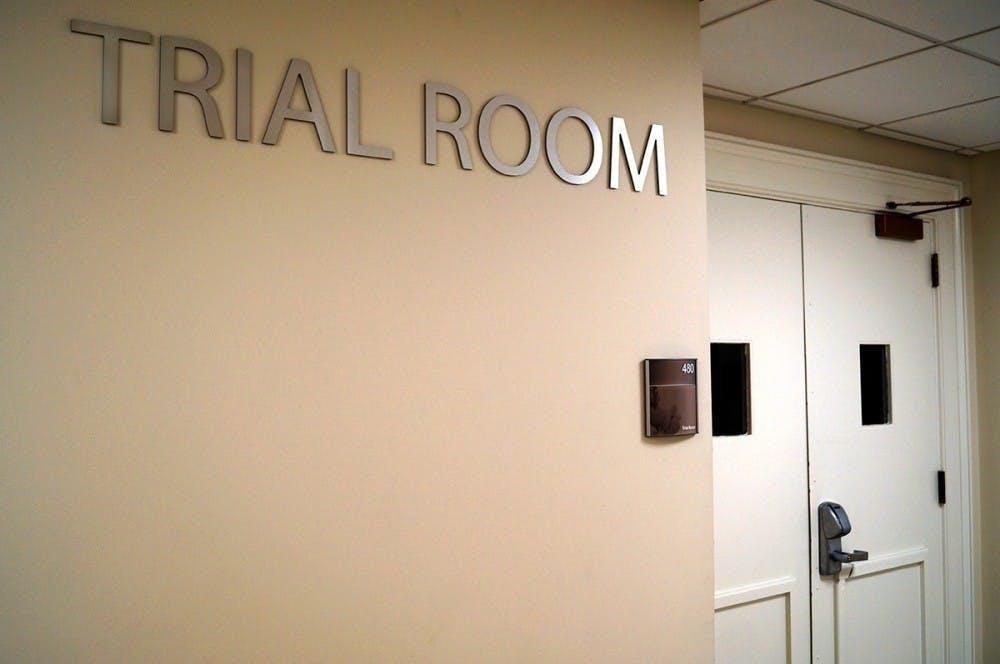Last week, the Honor Committee passed a new constitution that outlines a multi-sanction system. For it to take effect, the student body must vote to ratify the constitution in the upcoming spring elections. Decades of attempts, culminating in last year’s truly historic reduction of the single sanction to a two semester leave of absence, have led us to this pivotal moment. This Editorial Board thinks the proposed multi-sanction constitution is a step in the right direction — a step towards a more rehabilitative Honor system. Students must rise to the occasion and vote in favor of Honor’s new constitution this March. But this is not the end of the conversation — Committee members have work left to do to ensure the successful evolution of our Honor system.
The new constitution was largely produced by internal efforts from Committee representatives and support officers. This process was far from perfect, transparency is a virtue the Committee has yet to acquire — but, nonetheless, here we are. Under the proposed system, students will be tried before a panel for guilt that consists of five Committee members and seven randomly selected students. The five Committee members who serve on the panel that determines guilt will also be the individuals who comprise the panel that determines sanctions. Available sanctions include, but are not limited to, amends, education, suspension and — notably — expulsion. Importantly, for first time offenders, five-sevenths of the non-Committee panelists must vote to allow the panel for sanctions to consider permanent measures like expulsion.
These changes are a big deal. If passed, the new constitution will fundamentally shift the paradigm under which Honor has operated for more than a century. What was once a system steeped in the dogmatic pursuit of a narrowly conceived ideal will be a holistic process that confronts nuance to uplift a community, not punish individuals. Allowing the Committee’s panelists to consider aggravating and mitigating circumstances when crafting sanctions will help the Committee minimize the disproportionate impacts it has on various minority communities. Where a student's international status was previously ruled out of scope, there is now space for this information to be taken into consideration so any chosen sanction doesn’t unduly affect a student's F-1 visa. A vote in favor of this constitution is a vote which recognizes that not all situations should be treated the same.
Any worthwhile discussion of this new constitution must also consider its stance on expulsion. While the Committee has reintroduced expulsion as a potential sanction, the power remains largely in the hands of the student body — since, for first offenses, five-sevenths of the student panelists must vote to give the Committee the power to impose permanent sanctions. If instituted correctly, this requirement makes it clear that permanent, punitive measures should be utilized with caution — and never as a primary means to protect the Community of Trust. Despite the inclusion of expulsion as a sanction, it is hard to deny this new constitution signals an important shift away from punitive measures and toward the rehabilitative system students have been calling for.
There are specific steps that Honor must take to facilitate the success of their new constitution. The student body should be invited into the by-law amendment process. Whether that happens by more actively encouraging public dialogue at Committee meetings or making meeting minutes readily accessible — since students were not directly included in the drafting of this new constitution, the Committee must seize any opportunity it gets to involve us in the shaping of this new system.
Additionally, those elected to be Honor Representatives must educate themselves on the nuances that come with multi-sanctioning. A system that lacks precedent can allow biases to seep in, but this can be avoided with a commitment to rehabilitative sanctions which address the context and subtleties of every particular case. Implementation of this system may not be easy — radically transforming institutions to work on behalf of people they were not originally designed to work for never is.
It may be naive, but this Editorial Board has faith that this new constitution — and the students tasked with leading its implementation — will begin the arduous process of creating a real Community of Trust, not one that is built on simplistic ideals or punitive measures but one that is grounded in the reality that trust is built through care and compassion. These are the values that we hope underpin all the work the Committee does moving forward, and these are the values that the seven of us will have in mind when we vote “yes” on the upcoming Honor referendum.
The Cavalier Daily Editorial Board is composed of the Executive Editor, the Editor-in-Chief, the two Opinion Editors, their Senior Associates and an Opinion Columnist. The board can be reached at eb@cavalierdaily.com.







